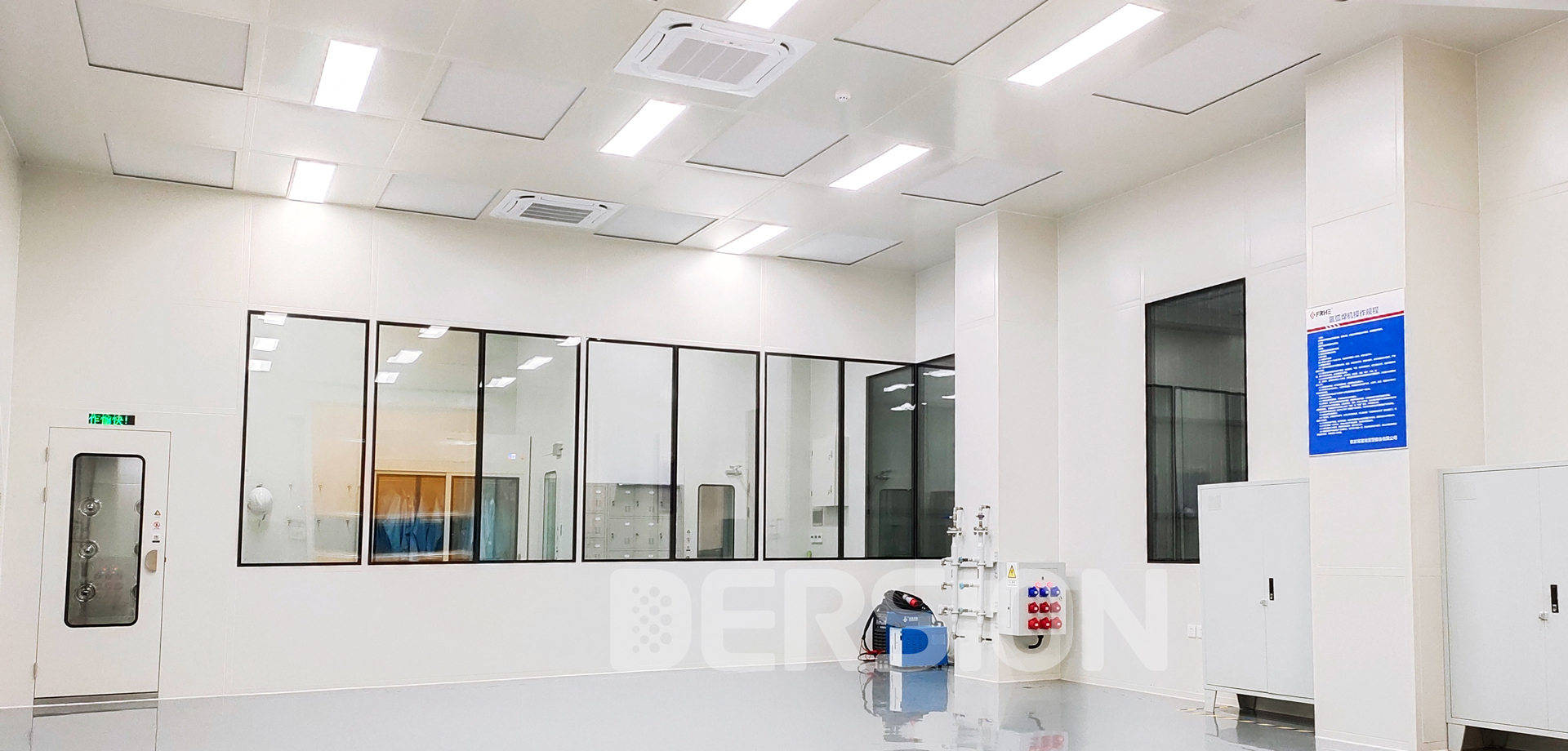1. Cleanliness level:
Class 100 clean room: The maximum number of particles with a particle size greater than or equal to 0.1 micron cannot be greater than 100 .
Class 1,000 clean room: The number of dust particles less than 0.5 microns per cubic meter is controlled below 3,500 .
Class 10,000 clean room: The number of dust particles greater than or equal to 0.5 microns is between 35,000 particles/m³ and 350 particles/m³.
Class 100,000 clean room: The number of particles per cubic meter is controlled within 100,000, and 15-19 ventilation times per hour are required.
2. Temperature and humidity control:
Class 100 clean room: The temperature is controlled at 22℃±2℃, and the humidity is 55%±5%.
Class 100,000 clean room: The temperature is generally controlled at 20~22℃ in winter and 24~26℃ in summer, and the humidity is adjusted according to the season.
3. Air purification system:
High-efficiency filtration system: Use high-efficiency air filtration systems, such as FFU (Fan Filter Unit) and MAU (Make-up Air Unit) to ensure the cleanliness of the air.
Unidirectional air supply mode: Clean rooms above Class 100 usually use unidirectional air flow to ensure directional air flow and avoid dust diffusion.
4. Special requirements:
New energy vehicle battery production: Since lithium battery production has high requirements for air humidity, dust-free workshops need to strictly control humidity to prevent raw materials from being immersed in moisture in the air, thereby affecting the safety of lithium batteries.
Post time: Dec-13-2024

